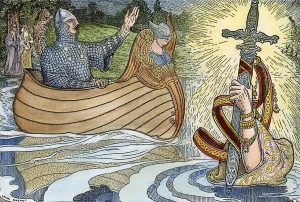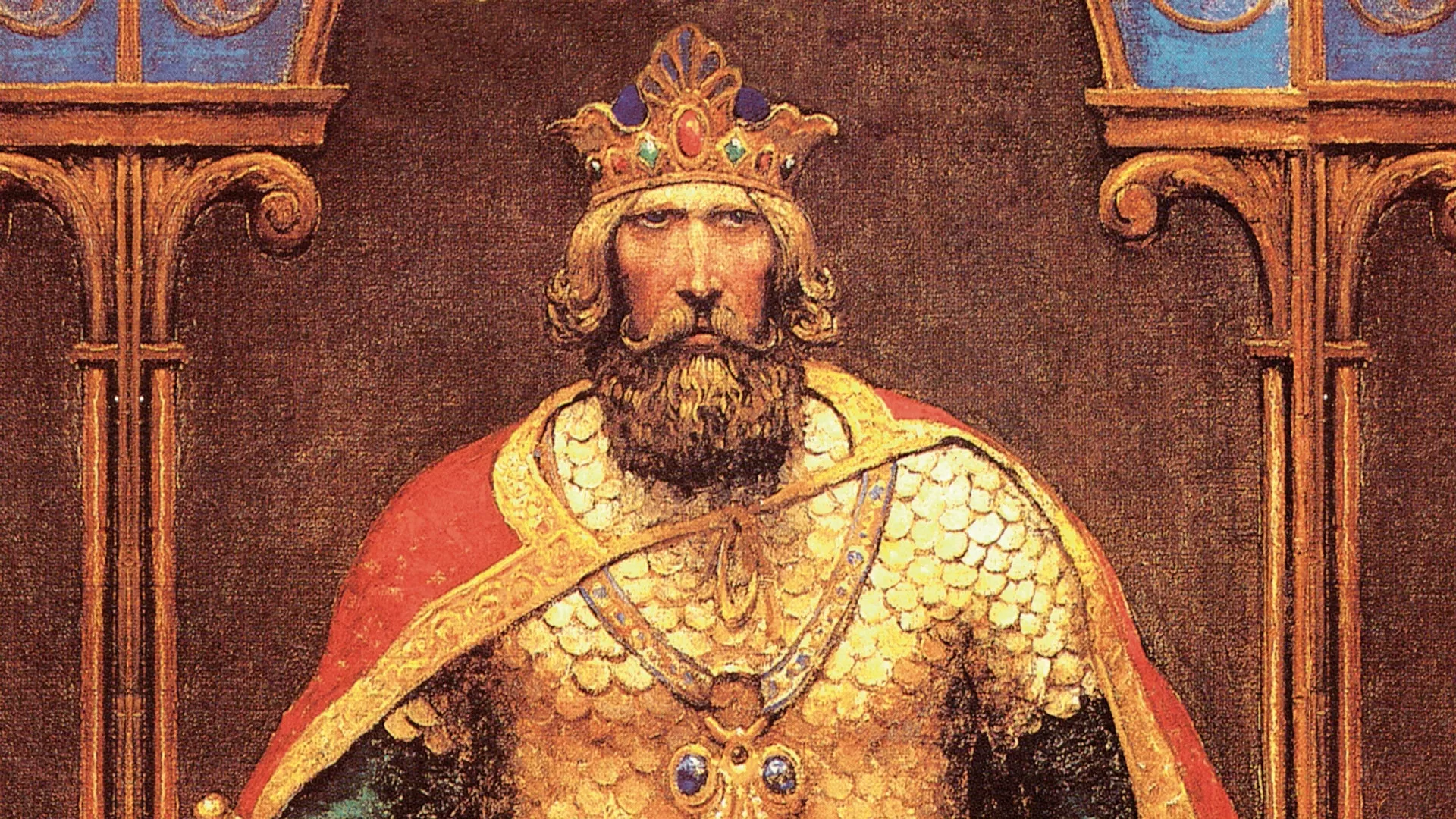The theory of the two natures, being that there is a physical and metaphysical nature to life, lends itself to the description of the devolution or degradation of society. The physical nature of this period is most aptly described by Thomas Hobbes in Leviathan, whereby Hobbes describes the life of man in nature as “a war of all against all” and most famously “…nasty, brutish and short.” Man is pitted against man for the attainment of material gain, using nothing short of violence and espionage to accomplish his tasks. Counter to, but balanced by the physical, is the metaphysical, as espoused by Julius Evola’s concept of the interregnum. Evola’s interregnum is characterized by an increase in decadence and the rejection of tradition in favor of materialism both individually and as a broader society.
The interregnum plays out most prominently in Evola’s The Mystery of the Grail. In this work, Evola describes the Arthurian cycle as one beginning with a golden age, decline into decadence or the interregnum, the quest for the Grail, and finally spiritual and societal rebirth once the Grail has been attained. The key take-away is that the decline into decadence and chaos in the physical world is only halted and reversed by a spiritual rebirth symbolized by the attainment of the Grail, or the rise of a sovereign force of divine blood.
The physical state of nature holds strength and violence of action to be supreme over altruism and peace, as man is in a constant state of fear that his life will be taken by others in search of material gain. The search for material gain prompts man to always be on the offensive, lest he become a victim himself, that is to lose his own freedom or material gains. Indeed, the notions of justice and injustice are foreign to the state of nature; force and fraud are cardinal virtues. This period should be seen as the antithesis of civilization. The period of degradation is dominated by the supremacy of physical nature, but that is only one side of the natural coin. On the other side lies the metaphysical, or rather its notable absence.
At the height of society, when all parts seem to be functioning as a cohesive whole, there is a strong connection between law, culture, and man and the divine. In traditional societies, all institutions had this divine underpinning. The Viking civilization and the Norse Pagan pantheon or Ancient Greece and its submission to Zeus and the Olympian gods, and to a lesser extent the Holy Roman Empire and Christ, are prime examples. It was necessary that the physical be connected to the divine for the efficacy of these institutions. The lack of a divine origin meant that all culture and law were derived from the very people it was to subject and thus lacked authority.
A catalyst, which is beyond the scope of this essay, initiates a period of decline or degradation in which man becomes divorced from his latent metaphysical nature. The divorce at the individual level gradually becomes broader and encompasses the institutional foundations of society. Philosophy and politics take on a decadent nature, worshipping the material gods of money, flesh, and status.
It therefore becomes apparent, to a select group, that traditional society must be recaptured. This, despite the cyclical nature of reality, is far from a certainty. In the saga of King Arthur, his knights are the elect that will seek the return to a tradition by securing the Grail, located in the polar center. Physical society has been dislodged from the polar center and lies useless on the ground like a wheel fallen off its axle. The effects of the severing of this connection result in disorientation, the decline into decadence and the degradation of authority, seen most visibly in the spread of liberal democratic ideas throughout the world post-WWI.
On the physical plane, the escape from the violent reality of nature and return to civilization comes in the form of the sovereign. Hobbes states, “There is always war of everyone against everyone. Hereby it is manifest that during the time men live without a common power to keep them all in awe, they are in that condition which is called war…”
Peace, therefore, comes from a sovereign, “the spinner of the wheel” being situated at the polar center controlling men’s passions through divinely originated laws, institutions, and might. The efficacy of the sovereign and the laws which flow from him can only be objective if they are known by all men to be born of a divine will. The divine will extends into the necessity to compel by physical force, the more resistant of men. This force or battle is a sacrificial blood rite when it originates from the will of the divine sovereign.
The people are linked to the sovereign through rites and sacrifices. Sacrifices must be performed in a similarly ordained way and are known to cause chaos, not only for the individual, but all of society, if they are done in an unauthorized fashion or by someone unqualified. The sterility of the modern rites of Christian churches should be seen as the final form of the decline of this practice. There is almost no trace of these rites connecting to the metaphysical in man, even though we are supposed to be born of God by their doctrine. The severing of this link through centuries of reform is one of the main causes of sterility within this institution.
The attainment of the Grail in the Arthurian Cycle acts to reinvigorate these rites and nourishes the knights, just as the divinely originated sovereign nourishes societies, destroying material desires in favor of the divine virtues of authority, justice, honor, and regality. The degraded or decadent society in need of nourishment is symbolized by the “Dry Tree” on which the last king hangs his sword and shield, a devastated and sterile organic body awaiting renewal. The society renewed by the Grail or sovereign arises from the ashes like the phoenix and soars forth in majesty like the imperial eagle.
The phase of renewal characterized by the Arthurian knight and his search for the Grail or the birth of the sovereign with divine blood is the end of the phase of decline and degradation. The “sleeping king” has been awaiting his preordained time to make his triumphal return to civilization, in which he will usher forth the next golden age. It is imperative that we pave the way for this return and end the phase of decadence and decline.








